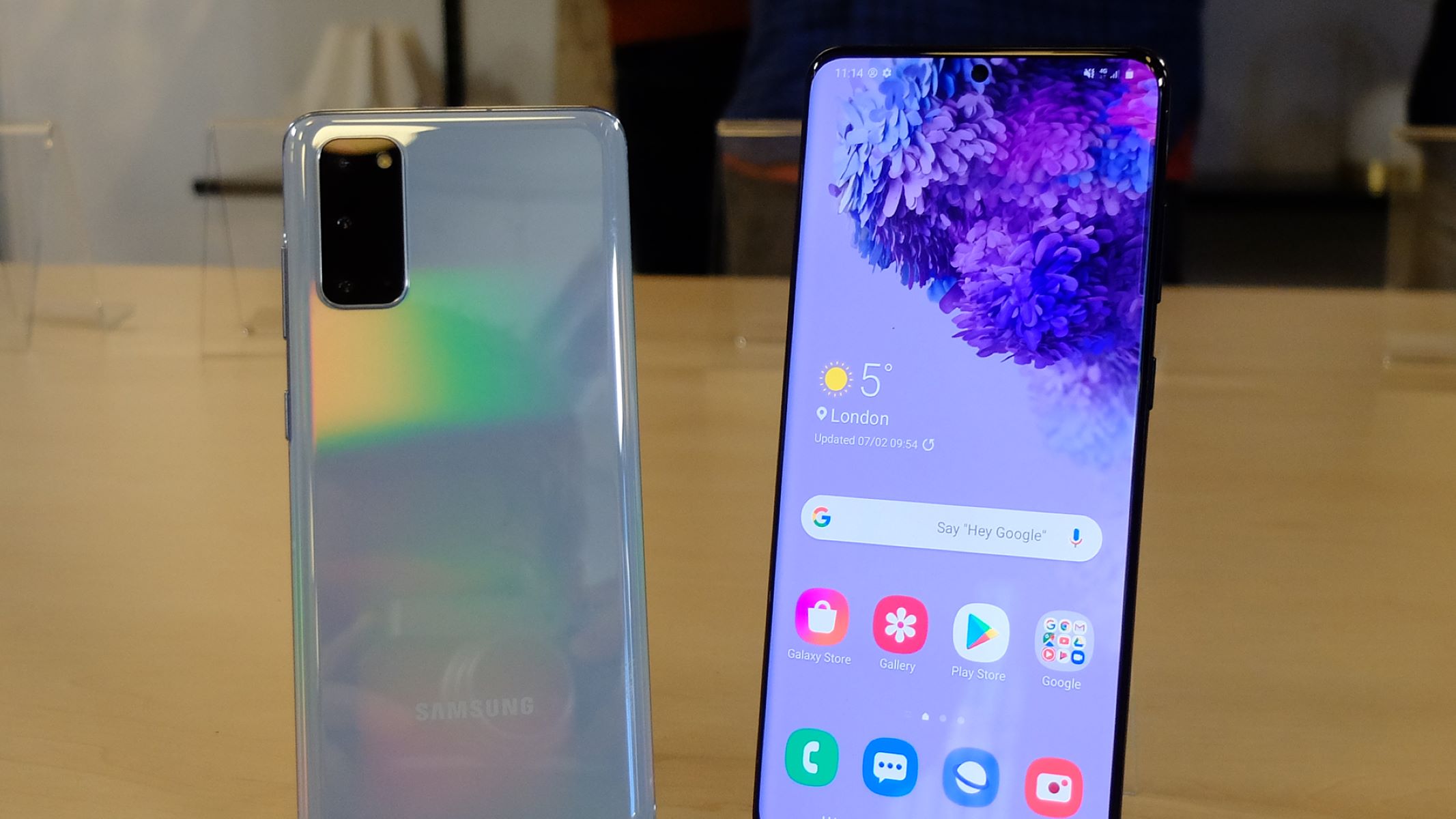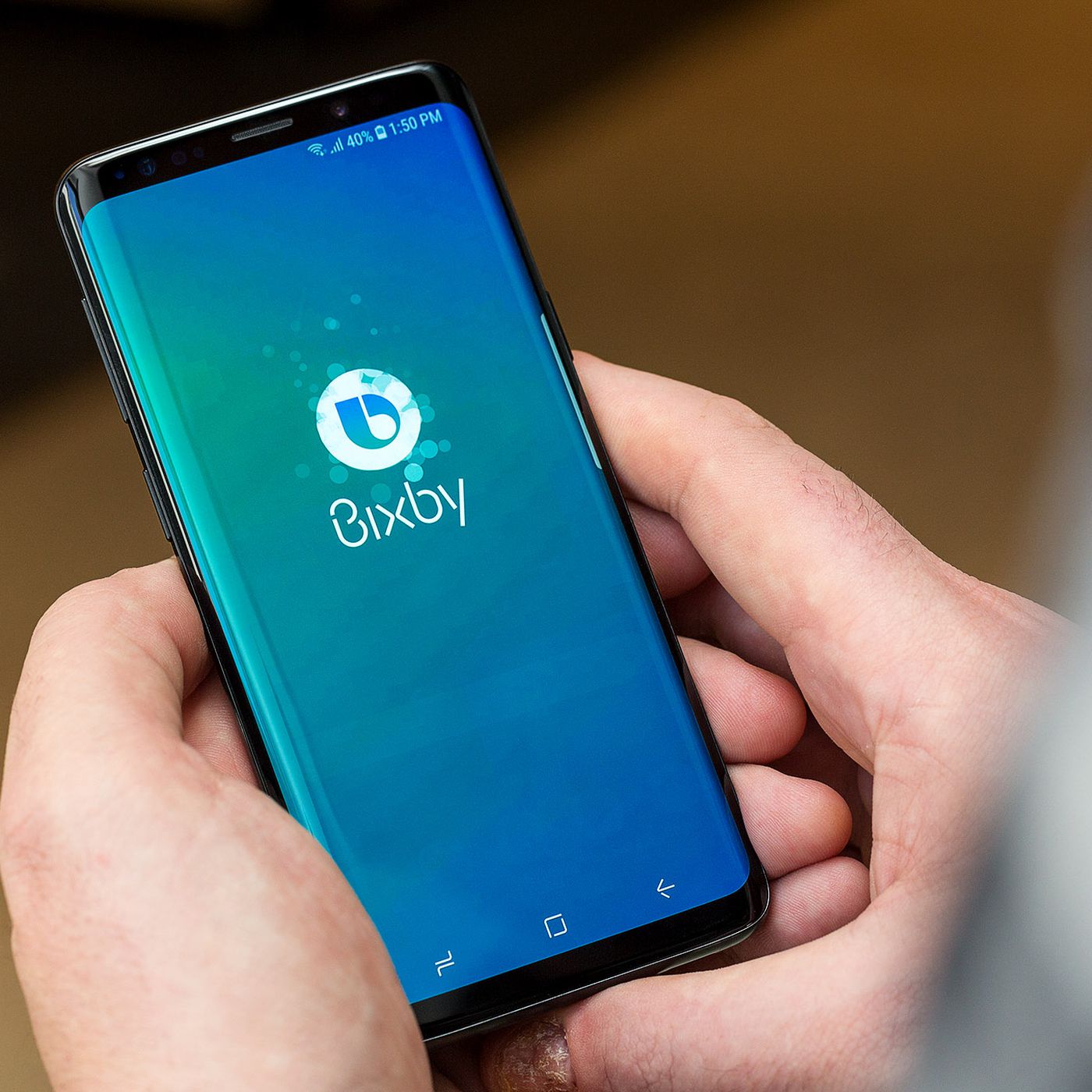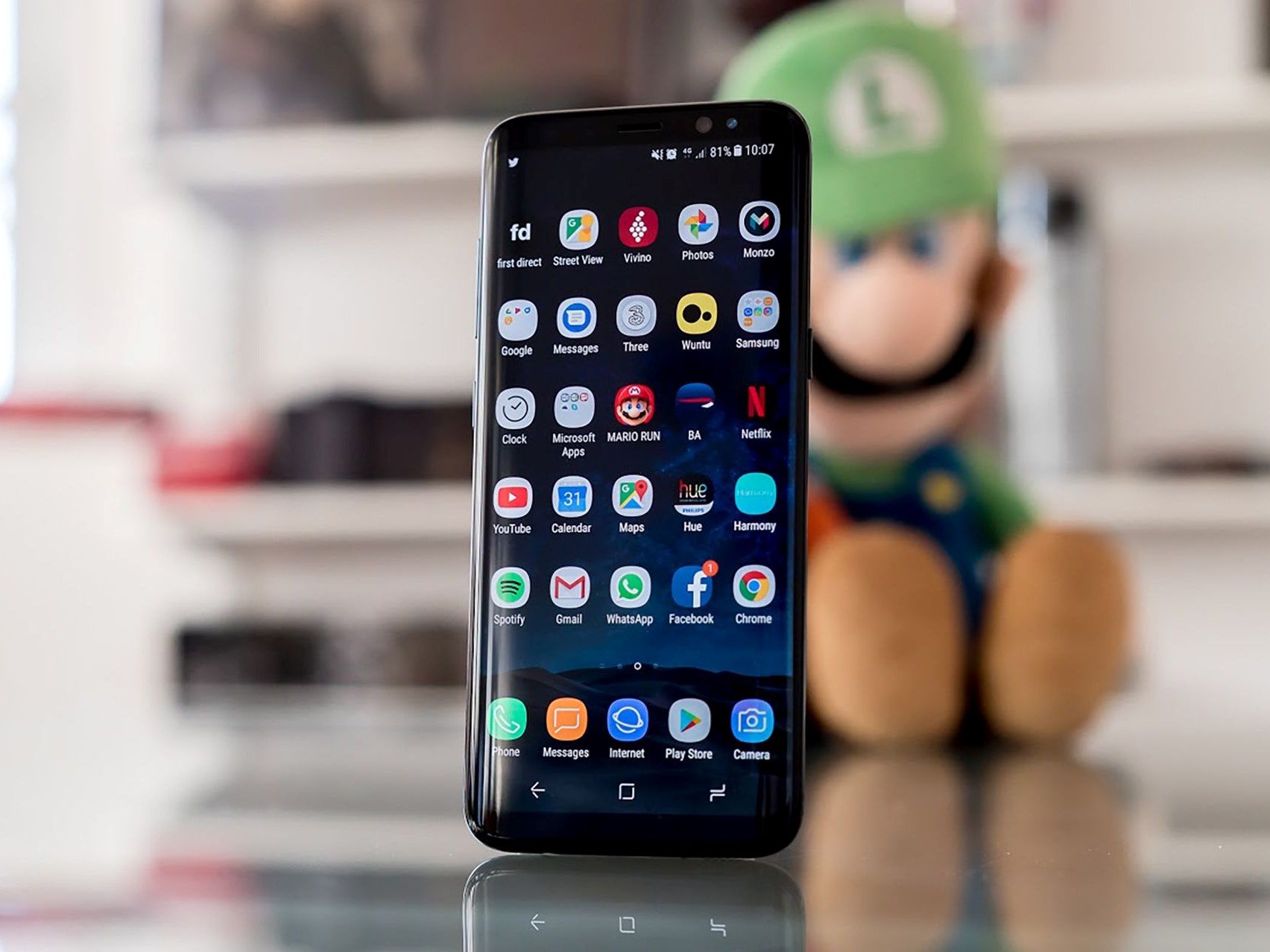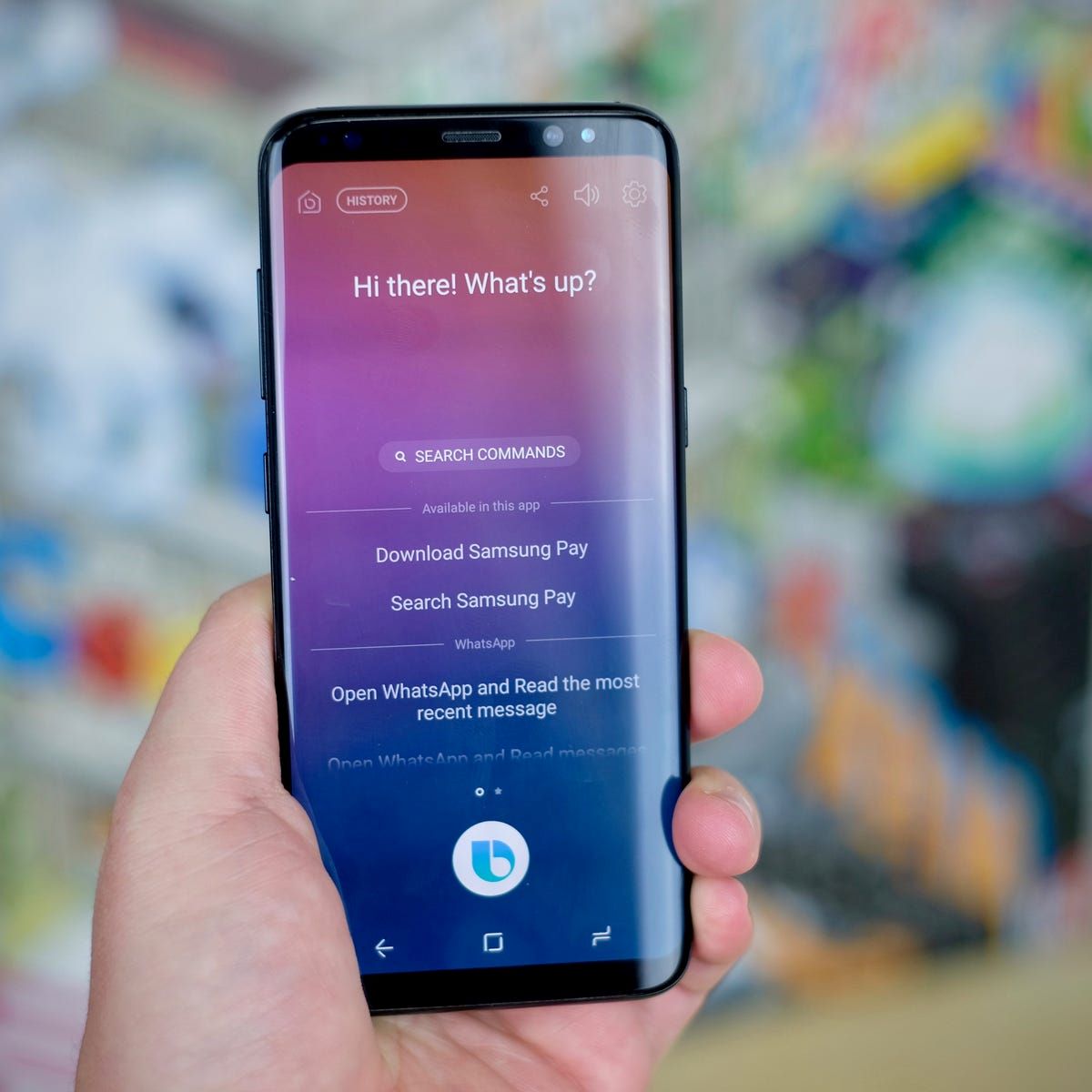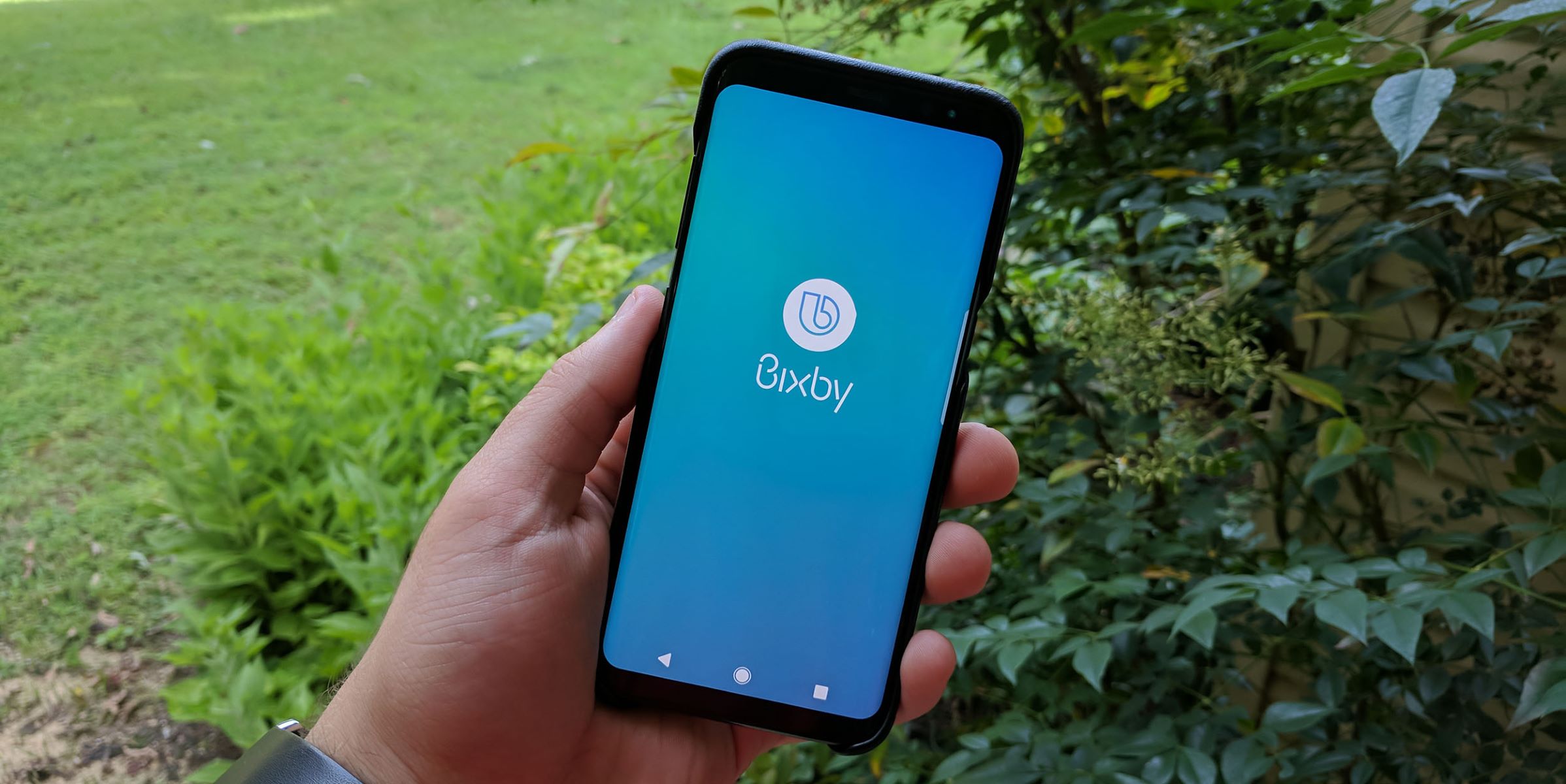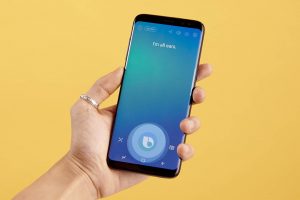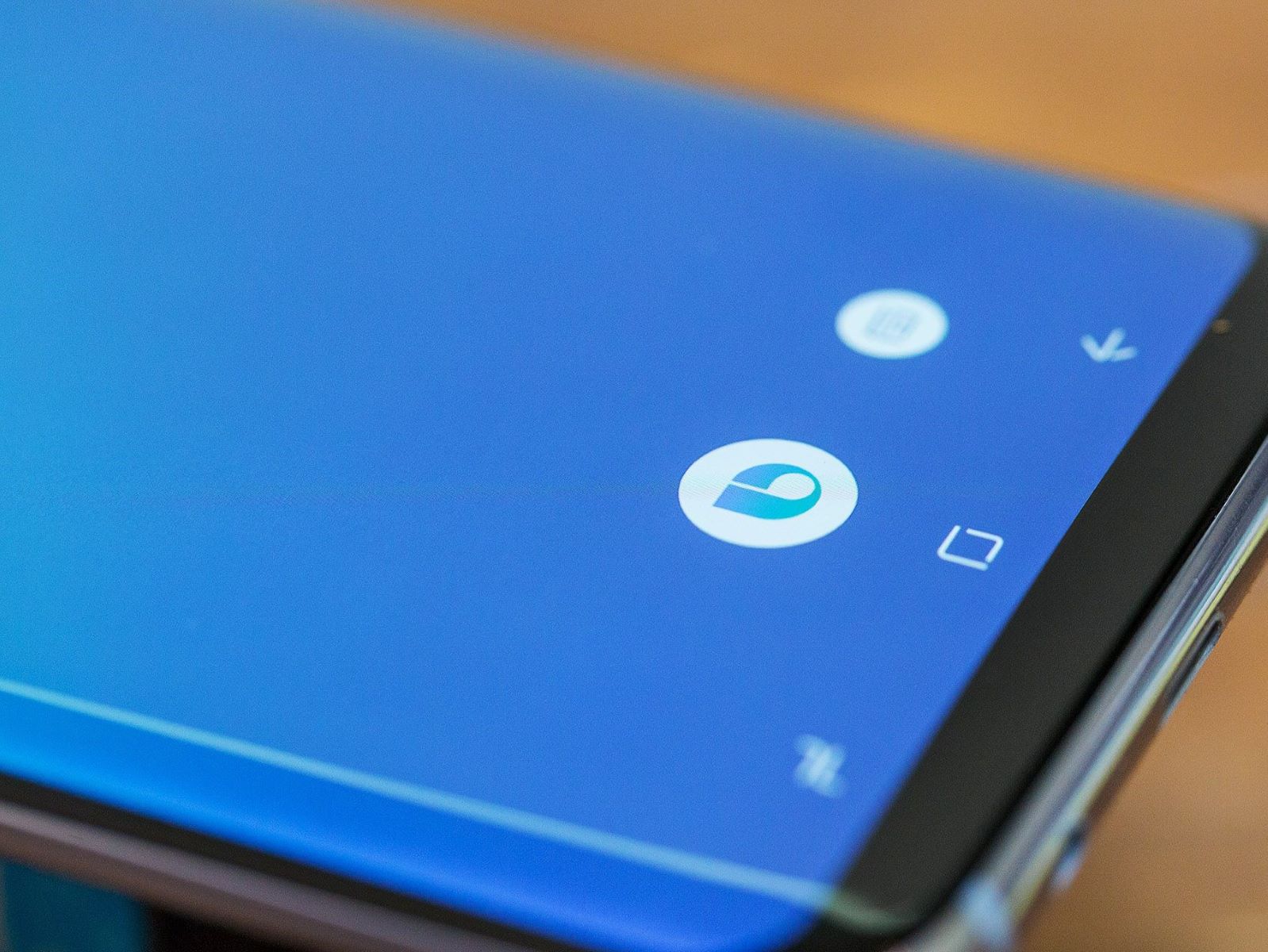Introduction
In today’s digital age, virtual assistant technology has become an integral part of our lives. Siri, developed by Apple, and Bixby, created by Samsung, are two of the most popular virtual assistants available on mobile devices. These voice-controlled interfaces aim to provide users with a hands-free and efficient way to interact with their smartphones or smart devices. However, when it comes to deciding which virtual assistant is better, the debate between Siri and Bixby is a challenging one.
Both Siri and Bixby have their unique strengths and capabilities, making it essential to examine various aspects of their performance. This article will compare Siri and Bixby in terms of user interface, voice recognition, language support, search capabilities, personalization, integration with apps and services, natural language processing, speed and accuracy of responses, voice quality and intonation, as well as privacy and data security.
Understanding the strengths and weaknesses of these virtual assistants will help users make informed decisions when it comes to choosing the one that aligns with their needs and preferences. So, let’s delve into a detailed comparison of Siri and Bixby to determine who comes out on top as the better virtual assistant.
User Interface
The user interface is a crucial factor in determining the usability and overall experience of a virtual assistant. Both Siri and Bixby offer visually appealing and intuitive interfaces, making interaction with the virtual assistant seamless.
Siri is available on Apple devices, including iPhones, iPads, and Mac computers. It can be accessed by holding down the home button or using the “Hey Siri” voice command. Siri’s interface features a translucent overlay that displays information cards and provides voice-driven responses.
Bixby, on the other hand, is designed exclusively for Samsung devices like Galaxy phones and tablets. It can be activated by pressing the dedicated Bixby button or using the voice command “Hi, Bixby.” Bixby offers a more visually immersive experience, with its interface blending seamlessly with Samsung’s One UI design language.
Comparing the two, Siri’s interface is known for its simplicity and streamlined user experience. The information cards are neatly organized, and users can easily scroll through results or Siri’s suggested actions. Bixby, on the other hand, offers a more visually vibrant interface with more options and customizability.
Both virtual assistants provide users with voice-guided instructions for completing tasks and performing various functions on their devices. Siri’s interface excels in offering a clean and straightforward approach, while Bixby’s interface appeals to users who prefer more visual and customizable options.
In terms of user interface, the superiority of Siri or Bixby largely depends on personal preference and the device ecosystem. Apple users may appreciate Siri’s minimalistic design and seamless integration with iOS, while Samsung users may prefer Bixby’s visually immersive experience and seamless integration with Samsung’s devices.
Voice Recognition
Voice recognition is a critical aspect of virtual assistants, as accurate and efficient voice detection is essential for seamless interaction. Both Siri and Bixby have made significant advancements in voice recognition technology, but the performance may vary in certain scenarios.
Siri, developed by Apple, utilizes advanced machine learning algorithms to enhance voice recognition capabilities. It can accurately identify speech commands, even in noisy environments, and exhibits a high level of accuracy in understanding user queries and instructions. Siri’s ability to comprehend natural language has improved over the years, allowing for a more fluid and conversational interaction.
Bixby, on the other hand, employs deep learning techniques to enhance voice recognition accuracy. It features a technology called “Bixby Wake-up” that makes it more responsive to voice commands, even from a distance. Bixby’s voice recognition capabilities have been refined to understand complex sentences and detect subtle variations in speech patterns.
While both virtual assistants excel in voice recognition, Siri has been regarded as slightly more reliable and accurate in most situations. However, Bixby’s performance should not be underestimated, as it has made significant strides in improving voice recognition accuracy and responsiveness.
It is important to note that voice recognition accuracy can be influenced by various factors such as accents, speech patterns, and background noise. Personal preferences and individual speech patterns may also have an impact on the perceived performance of the virtual assistants. Therefore, it is recommended to test both Siri and Bixby’s voice recognition capabilities in real-life scenarios to determine which aligns better with your specific speaking style and environment.
Language Support
Language support is a crucial factor for users who prefer to interact with virtual assistants in their native languages. Both Siri and Bixby offer support for multiple languages, ensuring a broader user base and increased accessibility.
Siri, developed by Apple, supports a wide range of languages, including but not limited to English, Spanish, French, German, Italian, Chinese, Japanese, and Korean. Apple continues to expand Siri’s language support with each new update, making it available to users around the world.
Bixby, developed by Samsung, also offers an impressive range of language support, catering to various regions and user preferences. It supports languages such as English, Spanish, French, German, Italian, Chinese, Korean, and more.
Both Siri and Bixby aim to provide users with a localized experience by understanding and responding accurately to commands and queries in different languages. However, the level of language support may vary depending on the specific language and region.
It is important to note that while both virtual assistants offer a wide range of language support, not all features and functionalities may be available in every supported language. Users should check the official documentation provided by Apple and Samsung to determine the specific language support for their desired features.
In terms of language support, both Siri and Bixby demonstrate a commitment to global accessibility and strive to provide users with a seamless experience in their preferred languages.
Understanding Context
Understanding context is a crucial aspect of virtual assistants’ performance, as it allows them to provide relevant and personalized responses based on the user’s queries and previous interactions. Both Siri and Bixby have made significant strides in understanding context, but there are differences in how they handle it.
Siri, developed by Apple, leverages its integration with various Apple services and apps to understand user preferences and provide context-aware responses. It can remember previous interactions, access user data, and make suggestions based on the user’s calendar, email, contacts, and browsing history. Siri’s ability to tap into the wider Apple ecosystem enhances its context comprehension and enables it to offer more personalized recommendations and assistance.
Bixby, developed by Samsung, takes a slightly different approach to understanding context. It emphasizes its adaptability and ability to learn user preferences over time. Bixby claims to understand the user’s usage patterns and adapts its responses accordingly, offering personalized suggestions and actions.
Both virtual assistants strive to understand the context of user queries, but Siri’s integration with various Apple services and Bixby’s focus on adaptability allow them to cater to different user needs and preferences. Siri’s seamless integration with Apple’s ecosystem provides a more holistic understanding of the user’s digital life, while Bixby’s adaptability promotes personalized interactions based on user preferences.
It’s important to note that understanding context is an ongoing process for virtual assistants, and both Siri and Bixby continue to improve their abilities to comprehend user queries and provide contextually relevant responses.
Search Capabilities
The search capabilities of virtual assistants play a pivotal role in providing users with accurate and comprehensive information. Siri and Bixby offer robust search functionalities, enabling users to find answers to their queries quickly.
Siri, developed by Apple, utilizes its integration with various search engines like Google and Bing to provide search results. It can conduct web searches, deliver relevant information, and display search results within the Siri interface. Siri also provides quick access to information such as weather updates, sports scores, stock prices, and more.
Bixby, developed by Samsung, incorporates its search capabilities with Samsung’s own search engine, allowing users to search for information directly within the Bixby interface. Bixby can provide search results, deliver news updates, display relevant articles, and offer quick answers to common questions.
Both Siri and Bixby can perform universal search functions, including looking up information, finding restaurants or businesses, and retrieving answers to general knowledge questions. However, Siri’s integration with popular search engines provides it with an advantage in terms of accessing a more extensive range of web resources and delivering comprehensive search results.
Furthermore, Siri’s integration with various third-party apps enables it to present in-app search results and perform specific tasks within supported applications. This seamless integration allows for a more streamlined and efficient search experience.
Bixby, on the other hand, emphasizes its deep integration with Samsung’s ecosystem of apps and services. This integration enables Bixby to provide more customized search results based on user preferences and deliver actions specific to Samsung devices and applications.
In summary, while both Siri and Bixby offer solid search capabilities, Siri’s integration with popular search engines and third-party apps provides it with a more comprehensive and versatile search experience. However, Bixby’s deep integration with Samsung’s ecosystem may make it a more attractive choice for users who primarily use Samsung devices and services.
Personalization
Personalization is a key aspect of virtual assistants, as it allows them to tailor their responses and actions to the individual user’s preferences and needs. Siri and Bixby both offer personalization features, but they may differ in terms of the level of customization and adaptability.
Siri, developed by Apple, prioritizes personalization by leveraging data from the user’s device and various Apple services. It can learn user preferences, adapt to their routines, and provide customized suggestions based on the user’s activities, location, and previous interactions. Siri integrates with Apple’s ecosystem of apps and services, enabling it to provide personalized recommendations, suggest relevant shortcuts, and offer proactive suggestions throughout the day.
Bixby, developed by Samsung, also focuses on personalization by understanding user behavior and adapting its responses accordingly. It can learn user preferences, understand usage patterns, and provide personalized recommendations for apps, services, and actions. Bixby emphasizes its adaptability to different situations and strives to offer a tailored experience to each user.
Both Siri and Bixby offer personalization features that enhance the user experience. However, Siri’s integration with Apple’s ecosystem and its access to a wide range of user data provide it with a more comprehensive understanding of individual preferences and habits. The depth of personalization offered by Siri makes it capable of delivering more contextually relevant suggestions and actions.
Bixby, on the other hand, prioritizes adaptability and learning user preferences over time. It takes into account the user’s interactions with Samsung devices and services to provide personalized recommendations and actions based on their behaviors.
Ultimately, the preference for personalization features may depend on the user’s individual needs and the devices and services they use. Siri’s integration with Apple’s ecosystem offers a detailed and comprehensive personalization experience, while Bixby’s adaptability and focus on user behavior may appeal to those who primarily use Samsung devices.
Integration with Apps and Services
The integration of virtual assistants with various apps and services is crucial for expanding their functionality and providing users with a seamless experience. Siri and Bixby both offer integration with a wide range of apps and services, but there are differences in the extent of their integration.
Siri, developed by Apple, has deep integration with the Apple ecosystem. It can interact with and control native apps such as Messages, Calendar, Reminders, and more. Siri also has integration with third-party apps through SiriKit, allowing developers to incorporate voice commands and interactions within their apps. This integration enables Siri to perform specific tasks within supported applications and enhances its functionality and usefulness.
Bixby, developed by Samsung, focuses on integrating with Samsung’s ecosystem of apps and services. It can interact with native Samsung apps such as Camera, Gallery, Phone, and more. Bixby also partners with select third-party apps to offer optimized voice commands and actions specific to those applications. This integration allows users to perform tasks and access features within these supported apps seamlessly.
Both Siri and Bixby offer integration with popular apps and services, providing users with the ability to control and interact with their favorite applications using voice commands. However, Siri’s wider support for third-party app integration through SiriKit gives it an edge in terms of the number of apps that can be accessed through voice commands and actions.
It is important to note that the availability and extent of app integration may vary depending on the specific app and region. Users should check the compatibility and integration details provided by Apple and Samsung to determine the supported apps and services.
In summary, both Siri and Bixby offer extensive integration with native and third-party apps, enhancing their functionality and allowing users to perform tasks and access features using voice commands. Siri’s wider support for third-party apps through SiriKit gives it an advantage in terms of the sheer number of apps that can be seamlessly integrated.
Natural Language Processing
Natural Language Processing (NLP) is a critical component of virtual assistants as it enables them to understand and respond to user queries and commands in a more human-like manner. Siri and Bixby both utilize NLP technology to enhance their conversational capabilities, but there may be some differences in their performance.
Siri, developed by Apple, has made significant advancements in natural language processing over the years. It can understand and interpret complex sentences, context, and user intents. Siri’s ability to process natural language enables it to provide more accurate and relevant responses, making the interaction with the virtual assistant feel more conversational and intuitive.
Bixby, developed by Samsung, also employs natural language processing techniques to understand user queries and commands in a conversational manner. It strives to interpret the user’s intentions accurately and provide contextually relevant responses. Bixby’s goal is to create a more natural and intuitive user experience through its NLP capabilities.
Both Siri and Bixby work to improve their NLP capabilities to better understand user contexts and intents. However, Siri is widely regarded as having a more advanced and refined NLP system, benefiting from Apple’s investment in artificial intelligence and machine learning research. This advanced NLP ensures that Siri can comprehend user queries more accurately and provide more meaningful responses.
It’s worth noting that while both virtual assistants strive to offer seamless and human-like conversations, the effectiveness of natural language processing can vary depending on different factors such as accents, dialects, and speech patterns. Users may find that one virtual assistant performs better for their specific linguistic nuances than the other.
In summary, both Siri and Bixby utilize natural language processing to understand and respond to user queries in a conversational manner. Siri, with its advanced NLP capabilities, is often recognized for its more accurate and nuanced understanding of user intents.
Speed and Accuracy of Responses
The speed and accuracy of responses are crucial factors in evaluating the performance of virtual assistants. Users expect prompt and accurate answers to their queries and commands. Siri and Bixby aim to provide quick and accurate responses, but there may be differences in their performance.
Siri, developed by Apple, is known for its fast response times and reliable accuracy. With its advanced processing capabilities, Siri can quickly analyze queries and provide relevant answers or perform requested tasks. Apple’s continuous investment in artificial intelligence and machine learning technologies has contributed to Siri’s improvement in both speed and accuracy over the years.
Bixby, developed by Samsung, also emphasizes speed and accuracy in its responses. It aims to provide quick and reliable answers to user queries, ensuring a seamless and efficient user experience. Samsung’s investments in AI research and development have contributed to the improvement of Bixby’s response speed and accuracy.
It is important to note that the speed and accuracy of responses may be influenced by various factors, including network connectivity, device performance, and the complexity of the query. Network speed and stability can impact the time taken for the virtual assistant to process and retrieve information, while device performance determines how fast the virtual assistant can analyze and respond to the user’s queries.
Additionally, the accuracy of responses may vary depending on the type of query and the availability of relevant information to the virtual assistant. Both Siri and Bixby rely on their integration with various online services and databases to access information for retrieval.
In general, Siri and Bixby strive to provide fast and accurate responses; however, Siri’s reputation for speed and accuracy is relatively higher, likely due to Apple’s continuous investment in improving its virtual assistant technology.
It’s important for users to consider their specific needs and priorities when evaluating the speed and accuracy of virtual assistants. Factors such as the complexity of queries, device performance, and network speed may influence the actual response times and accuracy experienced by users.
Voice Quality and Intonation
Voice quality and intonation are essential aspects of virtual assistants as they significantly impact the overall user experience. The voice of a virtual assistant should be clear, pleasant to listen to, and convey information effectively. Siri and Bixby both focus on delivering high-quality voice output, but there may be differences in their voice quality and intonation.
Siri, developed by Apple, is known for its clear and natural-sounding voice. The voice of Siri is designed to be pleasant and easily understandable by users. Apple has invested in developing advanced speech synthesis technology to ensure that Siri’s voice is lifelike and engaging. Siri’s voice is adjustable to different regional accents and preferences, providing a more personalized experience for users around the world.
Bixby, developed by Samsung, also emphasizes high-quality voice output. The voice of Bixby is designed to be clear and expressive, aiming to create a natural and engaging interaction with users. Samsung has made efforts in fine-tuning Bixby’s voice to ensure a satisfying and pleasant user experience.
When it comes to intonation, both Siri and Bixby aim to infuse their responses with appropriate nuances and emotion, enhancing the overall user engagement. They emphasize aspects such as pitch, rhythm, and emphasis to make the voice output sound more human-like and natural.
It’s worth noting that voice quality and intonation may be subjective, as user preferences for voice characteristics can vary. Some users may prefer a more neutral and professional voice, while others may prefer a warmer and friendlier tone. Personal preferences and cultural factors can influence the perception of voice quality and intonation.
In summary, both Siri and Bixby strive to provide high-quality voice output with clear and natural-sounding voices. While Siri is renowned for its lifelike voice and adjustable accents, Bixby also prioritizes creating a pleasant and engaging voice experience for users.
Ultimately, the preference for voice quality and intonation may depend on individual user preferences. Testing and experiencing the voice output of both Siri and Bixby can help users determine which virtual assistant aligns better with their personal preferences and provides a more satisfying voice experience.
Privacy and Data Security
Privacy and data security are of utmost importance when it comes to virtual assistants, as these systems collect and process sensitive user information. Both Siri and Bixby prioritize user privacy and employ measures to protect user data, but there may be differences in their privacy practices and data security protocols.
Siri, developed by Apple, has a strong reputation for prioritizing user privacy. Apple has implemented various measures to safeguard user data, including data encryption and anonymization. User queries and interactions with Siri are anonymized and not directly tied to the user’s Apple ID or other personal information. Additionally, Siri’s audio recordings are assigned a random identifier, further distancing them from the user’s identity. Apple also provides users with the ability to review and delete their Siri interactions if desired.
Bixby, developed by Samsung, also places a strong emphasis on protecting user privacy. Samsung integrates security features into its devices, allowing users to control the permissions granted to Bixby and the data it can access. Bixby’s data collection is primarily device-centric, with a focus on personalization and tailored experiences. User data is securely stored on the device and is not shared with external servers without explicit user consent.
Both Siri and Bixby implement strict security measures to protect user data from unauthorized access and breaches. Both companies prioritize user privacy by limiting the collection and use of personal data only to provide an optimized experience.
It’s important to note that while Apple and Samsung take significant steps to protect user privacy, the ultimate security of personal data also depends on user habits and device security. Users should ensure they have appropriate security measures in place, such as strong device passwords and keeping software up to date.
In summary, both Siri and Bixby value user privacy and employ robust security measures to protect user data. Apple’s reputation for privacy and encryption, as well as Samsung’s focus on device-centric data collection, contribute to the overall privacy and data security practices of Siri and Bixby.
Users can have confidence that their data is handled with care, but it is always recommended to review and understand the privacy policies and settings provided by Apple and Samsung to ensure that their personal data is handled in a way that aligns with their preferences.
Conclusion
After comparing Siri and Bixby in various aspects such as user interface, voice recognition, language support, understanding context, search capabilities, personalization, integration with apps and services, natural language processing, speed and accuracy of responses, voice quality and intonation, as well as privacy and data security, it is clear that both virtual assistants have their own strengths and weaknesses.
Siri, developed by Apple, excels in its user interface, voice recognition accuracy, wide language support, integration with Apple’s ecosystem, and advanced natural language processing capabilities. It offers a seamless and personalized experience for Apple device users with its ability to understand context and provide relevant suggestions.
Bixby, developed by Samsung, stands out with its visually immersive user interface, adaptability, and deep integration with Samsung’s ecosystem of apps and services. Bixby prioritizes user personalization and aims to provide a natural and intuitive experience through its voice interactions.
Ultimately, the choice between Siri and Bixby depends on individual preferences, device ecosystems, and specific needs. Apple users may appreciate the seamless integration and advanced features offered by Siri, while Samsung users may find Bixby’s deep integration with their devices and services more appealing.
When selecting between Siri and Bixby, it is important to consider factors such as device compatibility, language support, personalization options, and the specific features that are most important to individual users. Testing and experiencing both virtual assistants firsthand can provide valuable insights into their capabilities and help users make an informed decision based on their unique requirements.
Whether you choose Siri or Bixby, both virtual assistants continue to evolve and improve, providing users with increasingly advanced features and a more natural and convenient way to interact with their devices. As technology continues to advance, we can expect further enhancements and innovations from both Siri and Bixby, further enhancing the virtual assistant experience for users.









